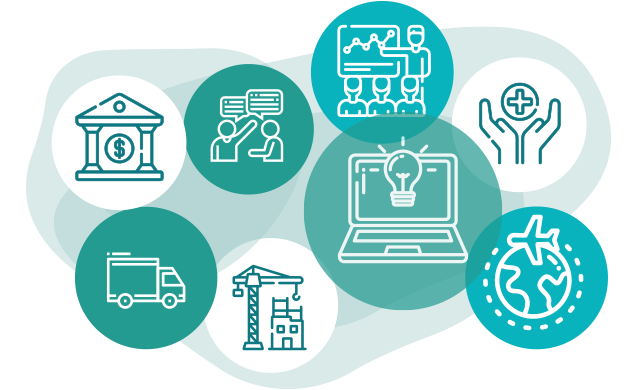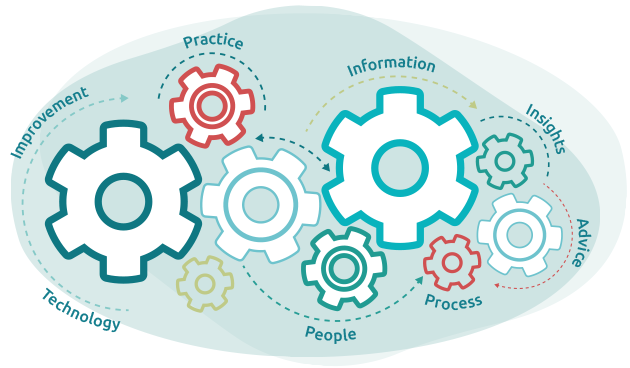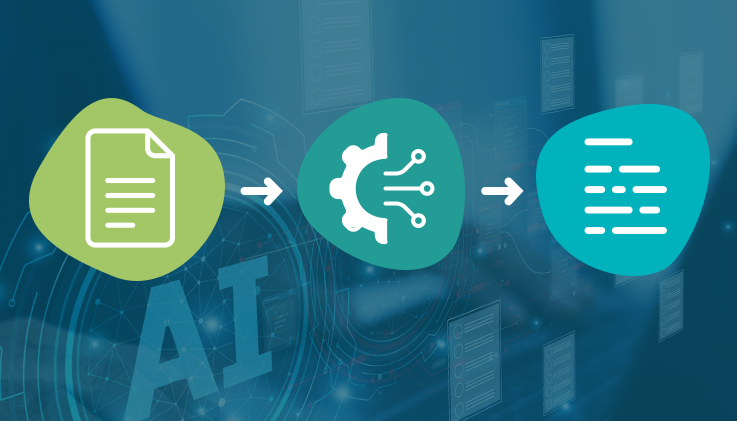AI helpdesk software and service companies work best together. If you already use one, you have seen the difference it makes. But if you have not implemented a smart AI helpdesk yet, you might be missing out on a major opportunity to elevate your service experience.
In a cutthroat competitive market, consumers measure a company's performance with each interaction. They might abandon the brand with one bad experience. On the other hand, these customers can turn into loyal brand advocates if you deliver remarkable service experiences to them. Bottom line? Customer experience is the key brand differentiator nowadays.
However, only building an excellent customer support team is not enough. You also require an intelligent tool like AI Helpdesk software that can act as a catalyst to achieving stellar CX. It is even more critical for customer facing businesses or service-based companies.
The reason being, an agent cannot repeat the same task with 100% accuracy in a manual process. Subtle variations will be inevitable along with some possible mistakes too. That is why, it would be ideal for companies to adopt a standardized approach that is smart and reliable, and thereby, service providers resort to AI helpdesk software.
Now, let us understand the relevance of an AI helpdesk in a customer service ecosystem. For instance – how does a service-oriented business function? How can an intelligent tool help streamline customer support operations?
Functional and operational aspects of service companies
Although every business has its respective departments, service companies are essentially focused on building processes that cater to delivering value to their customers. Their prime objective is to sell services rather than products.
Examples of such businesses include – training services, software services, consultation services, financial services, travel and tourism, healthcare, marketing services, distribution and supply chain, construction, etc.
Unlike products, services are intangible. Here, the trait that matters most is effective brand interaction that delivers an enduring experience. Simple because in the 21st century, companies that will focus more on customer experience are most likely to become more profitable. Aligned with this notion, the majority of the leading brands substantially prioritize customer service to outplay their rivals.
Let's dive into the details.
1. Case management backed by intelligent automation
At the onset, look at the following challenges in a manual process.
a) Case escalation: It is a critical process aimed at addressing complex or unresolved customer issues with utmost urgency and efficiency. When such cases arise, dealing with them often proves challenging, and escalating multiple cases at a go becomes a nightmare for service agents.
b) Case priority: It refers to setting orders to customer cases based on their level of urgency, importance, or impact. Assigning priorities to cases helps service centers manage their workload effectively and ensure that critical issues receive prompt attention. But a question might arise: who is going to do that? Manually it is nearly impossible to assign the right cases to the right agent due to the high volume of customer queries or complaints, and also time constraint acts as a hindrance.
c) Spike in cases: A sudden surge in customer requests is a common phenomenon in a contact center. Being unprepared to tackle the situation leads to disruption. In a way, it takes a toll on the agents as they remain occupied and cannot extend their hands going beyond their working capacity.
So, what are the best ways to resolve these concerns?
A company’s internal processes need to be adequately prepared to address any customer concern. For that, they surely need the assistance of automation tools that come with smart helpdesk software.
Cloud-based AI helpdesk software backed by robust multichannel capability and conversation bots can resolve the service centers' pain points. Implementing this smart mechanism is crucial to automate cases ensuring an efficient ticket escalation process. Modern contact centers are using a smart AI bot at every touchpoint. Taking advantage of artificial intelligence, most cases can be resolved quickly as AI itself can answer common customer questions really fast. The same applies to email or chat automation, which can read customers' messages and categorize every incoming inquiry to the appropriate agent.
Simply put, here is how you can enhance the standard:
- Implement smart automation that prioritizes cases according to their level of urgency
- Provide customers with an intelligent tool that accelerates the resolution process
- Categorize and route customer queries to specialists (service agents)
- Evaluate client lifetime value and prioritize cases accordingly
- Continue optimizing the process by measuring case metrics or KPIs
- Introduce an omnichannel customer touchpoint for better engagement
2. Empower support agents to maximize efficiency
Customer support incurs a reasonable cost. Therefore, service companies try to get the job done with their current resources, expecting the service team to be super-productive. But overloading support agents with mountain of works is not the correct approach.
Rather, empowering service desk agents is crucial for maximizing efficiency in today's fast-paced and technology-driven business environments. By providing support agents with the right tools, training, and support, organizations can unlock their full potential and achieve optimal productivity.
Additionally, organizations can invest in intuitive and user-friendly software solutions that automate routine tasks, streamline workflows, and provide real-time access to relevant information. By leveraging these technologies, agents can quickly resolve issues, handle customer inquiries, and deliver timely solutions.

3. Introduce customer self-service portal
Customer self-service portal is standard nowadays. Implementing this tool renders a momentary relief from successive calls and emails! And this is what the customers also prefer – finding their answers independently instead of calling or emailing service agents.
A self-service portal is an online platform that empowers individuals to independently access and manage various services and information. It serves as a centralized hub where users can find resources and resolve issues without the need for direct human interaction. The self-service portal enables users to take control of their own experiences, saving time and effort by providing instant access to the information and tools they need.
The benefits of customer self-service:
- Promotes self-sufficiency, reducing dependency on customer support
- Reduces the incoming calls and emails to the service agents
- Saves time for agents enabling them to work on other critical tasks
- Enhances efficiency, customer satisfaction, and overall user experience
- Service agents get relief from managing mundane stuff day in and day out
Conclusion
Running a thriving contact center is not an easy feat. Service companies face a gamut of challenges. Some struggle to overcome them; however, others get stronger with time. The ones that succeed often implement the right technology – helpdesk software powered by AI.
You might be a budding entrepreneur planning to start a service business. Or you are already managing a customer service team and willing to revamp the process. Or you have an existing solution that fails to do the job. Whatever the scenario, AI Helpdesk works like magic, offering an exceptional customer experience. ThinkOwl software suite has everything that organizations need to deliver extraordinary experiences across the end-to-end customer journey. Sign up now for a 30-day free trial.












